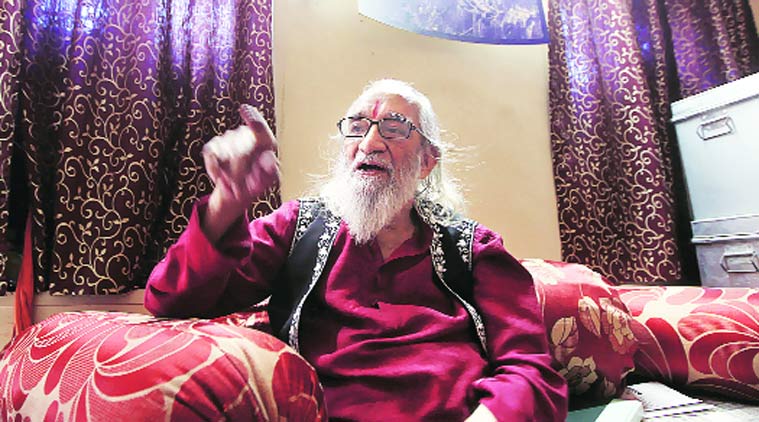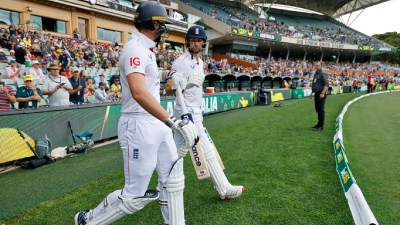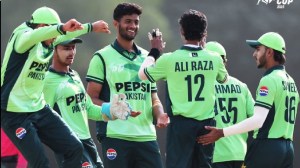Shivaji’s bard and a singeing row
Babasaheb Purandare, a 93-year-old historian, is to be conferred a top honour, but Maratha outfits accuse him of distorting history. Kavitha Iyer explains the politics of what’s now a raging controversy.
 Babasaheb Purandare is the author of a series of works on Maratha warrior king Chhatrapati Shivaji.
Babasaheb Purandare is the author of a series of works on Maratha warrior king Chhatrapati Shivaji.
With a day left for the ceremony to bestow the Maharashtra Bhushan, the top honour of the Maharashtra state, on Babasaheb Purandare, a 93-year-old historian, the government has a problem on its hands. Purandare, a writer and playwright who is popularly known as Shivshahir or Shivaji’s bard, is the author of a series of works written over 60 years on Maratha warrior king Chhatrapati Shivaji.
Opposing the choice of Purandare, Maratha organisations have threatened protests, a somewhat worried state government has hastily relocated the event to the high-security Raj Bhavan complex, a public interest litigation was filed on Monday calling for the ceremony to be stalled, the Congress and NCP have both opposed the move, and intellectuals, littérateurs and activists are still joining issue.
[related-post]
Charges of distorting history
The principal allegation against Purandare is of having distorted history, chiefly through claims regarding Shivaji’s parentage and his mother’s caste. The current charge against Purandare is being led by the same Maratha organisations that had marshalled the successful demand for a ban on James Laine’s book on Shivaji
in 2004.
Others too have opposed the government’s choice for the award, including Jnanpith awardee Balchandra Nemade, and member of Parliament Udayan Raje Bhosale, a descendant of the Maratha king.
The specifics
The opposition to Purandare’s work is not new and emerged over the last decade through a rather late analysis of his writing. The opponents, mostly Maratha organisations including some anti-Brahmin activists, have objected to certain references to Shivaji’s parents, particularly to his mother Jijamata. “If you read between the lines,” says Purushottam Khedekar of the Maratha Seva Sangh and an ideologue of the Sambhaji Brigade, “you’ll find several derogatory references”. Khedekar says the other problem with Purandare’s work is his representation of Shivaji as an anti-Islamic ruler. The antipathy to presenting Shivaji as anti-Muslim is complex. The king, whom school textbooks in the state depict as the heroic slayer of the much larger Afzal Khan and who outwitted Mughal emissary Shaistekhan, is also described as a secular leader and administrator, but the Maratha organisations’ view is contextualised in a sometimes extreme anti-Brahmin stand in which is dovetailed support for Muslim and Dalit issues.
Political equations at play
The NCP is leading the furore, though NCP chief Sharad Pawar had honoured Purandare a couple of years ago at a Pune event. The Maratha-dominated party is pressing hard to maintain its space in Maharashtra’s politics after some clear erosion in the state. With little else going for the party, the old clamour to appropriate Shivaji seems an almost unavoidable strategy. The Congress is opposing the award for Purandare too. Leader of Opposition Radhakrishna Vikhe Patil has called for a rethink based on “allegations against Purandare of distorting history”. But in 2009, when chief minister and now state Congress chief Ashok Chavan nominated Purandare to a committee overseeing plans for the long-promised statue of Shivaji off the South Mumbai seafront, his will prevailed despite protests from Maratha outfits.
- 01
- 02
- 03
- 04
- 05






































